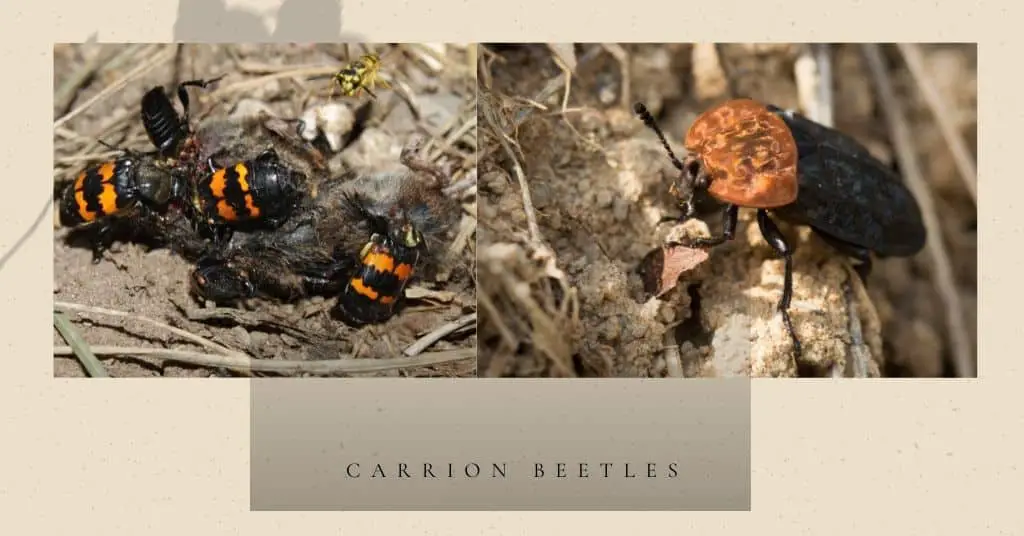
Jeffery Jago is a expert in horticulture and worm breeding. With a background in plant cultivation
Last Updated on May 10, 2021 by Jeffery Jago
Worms aren’t the only insect that finds use in the industrial sector and at home. In fact, Beetles are even more common to breed for a lot of purposes. One of those battles, in particular, is the carrier beetle. They serve many purposes in nature, and in captivity, they are especially important.
What is a carrion beetle?
Carrion beetles are a type of beetle that can be found in many places around the world. They consume carrion or (dead animal carcasses), so are often found where carrion is in abundance. They have been known to eat decaying plant material as well. In some regions of the world, these insects are considered pests in the wild because they cause damage to crops and transmit diseases from animals to humans.
– They are found in many parts of the world
– Females lay their eggs inside carrion
– The larvae feed on dead animals or decaying plant material
There are at least 70 known species of carrion beetles. They range from being black to white in color, or fairly vivid with yellows and oranges.
Carrion beetles serve many purposes in nature:
– They contribute to decomposition by feeding on carrion or decaying plant material
– Their larvae are predators that feed on different types of insects and invertebrates at a young stage and act as insect control before they are old enough to start eating carrion.
– They also pollinate flowers just by existing and walking around.
Carrion Beetles and the Industry
The carrion beetle has a large variety of uses in the industry because it eats decaying animals. It is often used to dispose of carcasses quickly that could cause harm if they were left alone for weeks or months on end.
This makes them a well-suited tool for people like taxidermists. They use carrion beetles to clean up animal carcasses and only leave bones behind, which really removes a lot of the nastiness that’s associated with taxidermy.
Speaking of bones, If you’ve ever watched an episode of Bones the tv show, You can see carrion beetles at work in a forensic lab setting. This isn’t just an overdramatization in a tv show either. Carrion beetles are often used for forensic purposes when a human or animal carcass is found.
The use of carrion beetles in forensic entomology is an increasingly popular one in order to experiment and study various different types of decomposition, and you will often find them bred at “body de-comp” sites.
Can you breed your own carrion beetles at home?
Yes, You can actually breed or farm carrion beetles at home, However, it’s not cheap or easy. In fact, compared to something like crickets or mealworms, carrion beetles can cost way more upkeep in order to keep them fed and enclosed.
Since they mostly eat rotting corpses, Unless you have a lot of those on hand for some strange reason, you’re going to be spending a lot of money on meat or livestock.
Worst case you may end up having to go out and kill your own livestock every few days just to keep them all fed, happy, and breeding.
If you really need carrion beetles, it’s best to just buy them from a supplier who’s already equipped to raise them. It’s much much easier. Worst case you can throw them into an enclosure, toss them a dead mouse every couple of days, and hope for the best.
Unfortunately, the species of their enclosure needs and dietary needs are out of scope for this article, But if you would like to see more about breeding and raising carrion beetles, we might go ahead and whip something up for you. Just let us know below in the comments or give us a should on social media.


